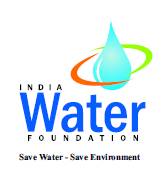
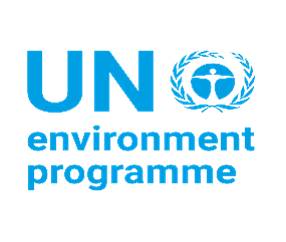
A high level webinar jointly organized by
India Water Foundation and United Nations Environment Programme
Supported by
October 23, 2020, 15:00-17:30 hrs (IST)
‘The Future of Liquid Waste Management amidst COVID-19: What lies ahead?’
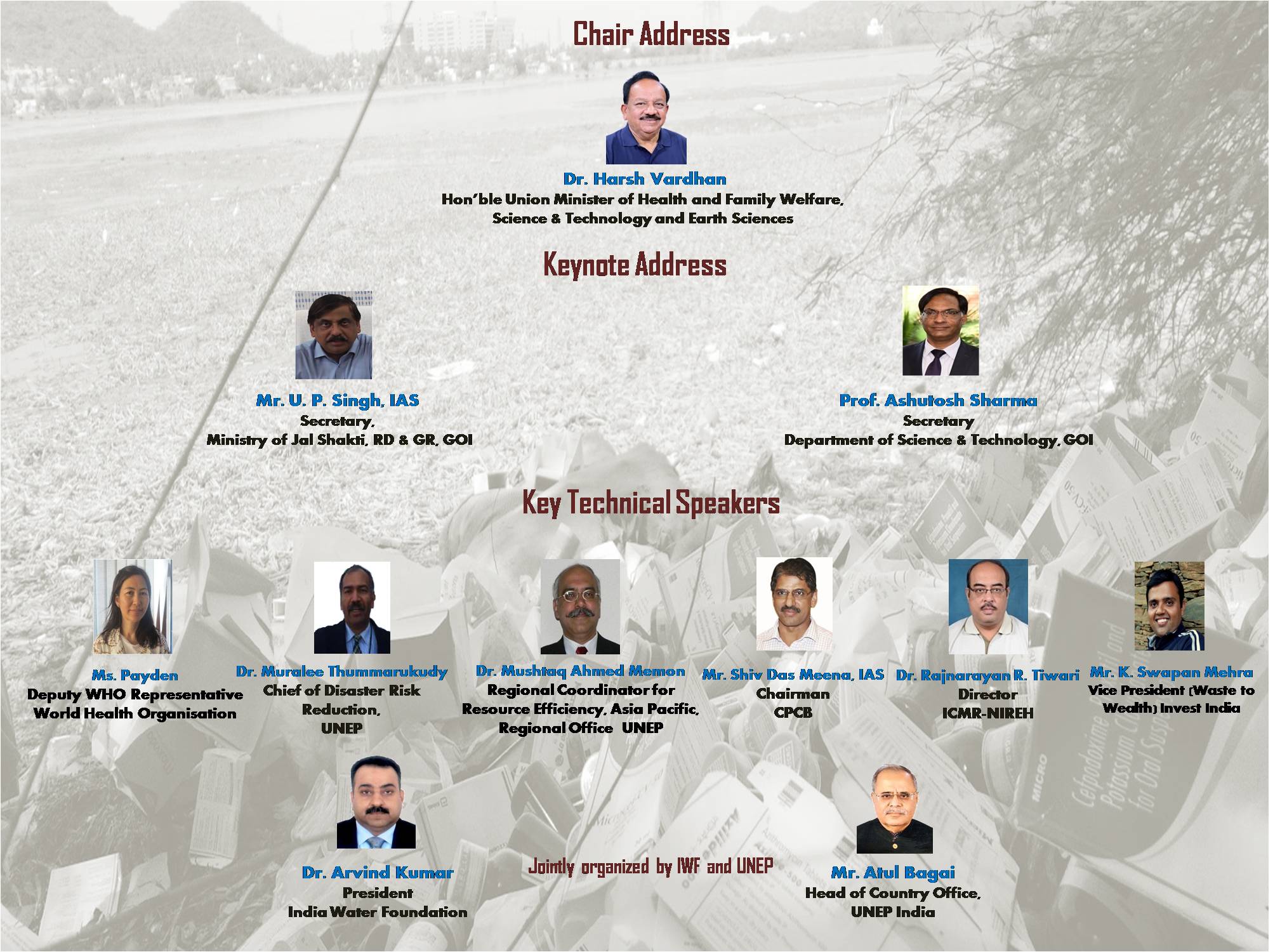
Background
The sudden onset of the COVID-19 pandemic in early 2020 has imposed massive health and economic burdens on communities around the world, and affected every sector of society, including the waste water sector. Among all the category of Bio medical waste, liquid wastes pose a serious threat to human health and the environment because of their ability to enter watersheds, pollute ground water, and drinking water when improperly handled and disposed.
Objectives
The main objective is to have a holistic understanding on various facets of waste management in context of COVID-19 along with socio-environmental impacts
The webinar is expected to find possible solutions to certain questions such as:
- Where water and sanitation systems are not adequate, the risk of finding novel viruses is very high. In this light, what challenges are anticipated towards handling liquid waste management?
- Are there rules/ guidelines from CPCB/ concerned authorities for the management of liquid waste or wastewater from healthcare facilities (HCFs) / Isolation Wards in addition to non-COVID waste?What about the applicability (on ground) and implementation of these rules/ guidelines?
- What effective practices and mechanisms can be leveraged to tackle and treat liquid waste discharge from hospitals? Are Sanitation workerstrained to operate under epidemic outbreaks? If not what can be done to improve?
- ‘Are the current system/practices in India effective to tackle and treat liquid waste discharge?
- How shall we support the scale-up of wastewater management as a cost-effective solution through appropriate finance and technologies to tackle COVID-19 waste in addition to non-COVID waste?
Expected participants
The list of speakers is expected to come from UNEP, India Water Foundation, Ministry of Health and Family Welfare; Ministry of Science and Technology; Ministry of Jal Shakti; Centre Pollution Control Board, Indian Council of Medical Research. Further, participants are expected to be gathered ranging from policy makers, practitioners and technical experts, professionals, UN and international agencies, development partners involved in waste management, bio-medical waste, sewage, finance and circular economy, civil society organizations, academia etc.
Expected Outcomes
- Addressing liquid waste management and prioritize actions at the ‘Source’ of the problem in holistic way and but also bring change in attitudinal change among stakeholders
- Proper training through knowledge dissemination and capacity building support to stakeholders, especially frontline workers in handling waste will enable critical management of liquid wastes management safely.
- Preparation and responding to suggestions towards operational adjustments and cost effective technology interventions with simultaneously protection of the health professionals handling waste at the interface.
- Understand and streamline policies, legislation, technologies and finances linked to COVID-19 pandemics that shall help developed and developing countries to have a stable legal and institutional basis to better respond to future waste emergencies and clarify measures to be taken.
|
Know about your host organizations and Speakers
|
 |
|
|
India Water Foundation (IWF)
 India Water Foundation, New Delhi based non-profit civil society & think tank engaged in enhancing public awareness about SDGs and also emphasizes on familiarizing the people regarding the vital role water, energy and environment play in human lives, their impact on health, economic growth, livelihoods of the people and calamities that wreak havoc due to non-judicious harnessing of these natural resources. India Water Foundation, New Delhi based non-profit civil society & think tank engaged in enhancing public awareness about SDGs and also emphasizes on familiarizing the people regarding the vital role water, energy and environment play in human lives, their impact on health, economic growth, livelihoods of the people and calamities that wreak havoc due to non-judicious harnessing of these natural resources.
|
United Nations Environment Programme (UNEP)
 UNEP is the leading global environmental authority that sets the global environmental agenda, promotes the coherent implementation of the environmental dimension of sustainable development. UNEP’s work encompasses: assessing global, regional and national environmental conditions and trends; developing international and national environmental instruments and strengthening institutions for the wise management of the environment. UNEP is the leading global environmental authority that sets the global environmental agenda, promotes the coherent implementation of the environmental dimension of sustainable development. UNEP’s work encompasses: assessing global, regional and national environmental conditions and trends; developing international and national environmental instruments and strengthening institutions for the wise management of the environment.
|

|
Chair Address
|
| Dr. HarshVardhan
 Dr. HarshVardhan is the Union Minister of Health and Family Welfare, Minister of Science and Technology, Minister of Earth Sciences and current Chair of World Health Organization’s Executive Board. His endeavors have pertained to the field of health at national and international level particularly polio eradication, tobacco control, essential drug policy, organ donation, etc.His public life has been marked by outstanding achievements in the fields of health, education, law, science & technology and environment. Dr. HarshVardhan is the Union Minister of Health and Family Welfare, Minister of Science and Technology, Minister of Earth Sciences and current Chair of World Health Organization’s Executive Board. His endeavors have pertained to the field of health at national and international level particularly polio eradication, tobacco control, essential drug policy, organ donation, etc.His public life has been marked by outstanding achievements in the fields of health, education, law, science & technology and environment.

|
|

|
Keynote speakers
|
| Mr. U.P. Singh, IAS
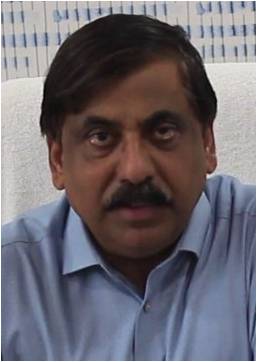 Mr. U.P. Singh is a Secretary in the Department of Water Resources, River Development & Ganga Rejuvenation, Ministry of Jal Shakti. He has held important assignments in both Central and State Governments and possesses a rich and varied experience. He is deeply involved in policy, planning and management of water resources in India. He oversees the implementation of PMKSY Projects, Inter-Linking of Rivers, two World Bank funded projects, viz. National Hydrology Project and National Ground Water Management and Improvement Scheme. These projects envisage revolutionizing water resources management in the country. Mr. U.P. Singh is a Secretary in the Department of Water Resources, River Development & Ganga Rejuvenation, Ministry of Jal Shakti. He has held important assignments in both Central and State Governments and possesses a rich and varied experience. He is deeply involved in policy, planning and management of water resources in India. He oversees the implementation of PMKSY Projects, Inter-Linking of Rivers, two World Bank funded projects, viz. National Hydrology Project and National Ground Water Management and Improvement Scheme. These projects envisage revolutionizing water resources management in the country.

|
Prof. Ashutosh Sharma
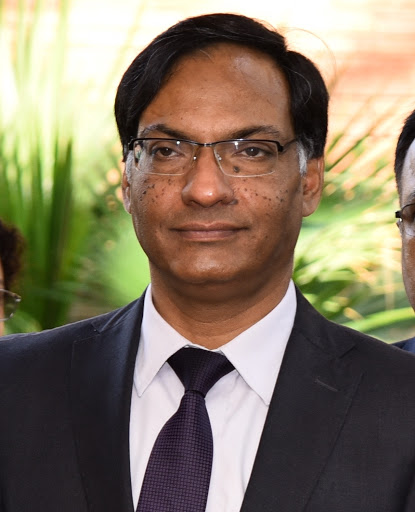 Prof. Ashutosh Sharma is a Secretary to the Government of India since January 2015, heading the Department of Science and Technology (DST), where he helped initiate several new programs related to infrastructure and human capacity building; innovation and startups; R&D in advanced manufacturing, waste processing, clean energy and cyber-physical systems; industry-academia cooperation; science communication; women scientists; and major international collaborations in the areas of priority for the nation.He has published over 350 peer reviewed papers, filed over 15 patents, given over 150 invited or key note conference presentations and mentored a successful nanotechnology startup. Prof. Ashutosh Sharma is a Secretary to the Government of India since January 2015, heading the Department of Science and Technology (DST), where he helped initiate several new programs related to infrastructure and human capacity building; innovation and startups; R&D in advanced manufacturing, waste processing, clean energy and cyber-physical systems; industry-academia cooperation; science communication; women scientists; and major international collaborations in the areas of priority for the nation.He has published over 350 peer reviewed papers, filed over 15 patents, given over 150 invited or key note conference presentations and mentored a successful nanotechnology startup.
|
|
Key Technical Speakers
|
 |
|
| Ms. Payden
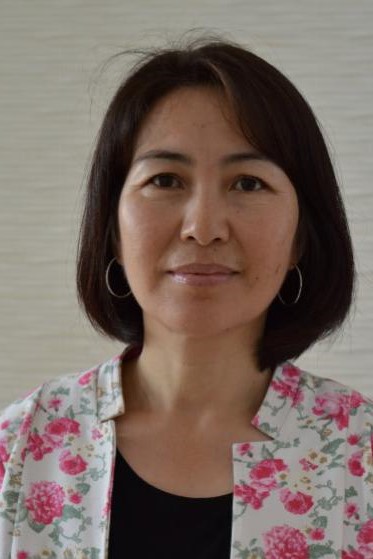 Ms Payden, is a public health professional with more than 24 years’ experience. Her expertise is in the areas of water, sanitation, hygiene and waste management. She worked in the WHO regional office for south-east asia, as regional advisor for WASH for 11 years. She is currently working in WHO India office as deputy Head of Office and she coordinates health programmes such as communicable diseases, NCDs, maternal and child health, health systems, health security and emergency and environmental health. She has a Masters in Sanitary Engineering and Masters in Public Health. Ms Payden, is a public health professional with more than 24 years’ experience. Her expertise is in the areas of water, sanitation, hygiene and waste management. She worked in the WHO regional office for south-east asia, as regional advisor for WASH for 11 years. She is currently working in WHO India office as deputy Head of Office and she coordinates health programmes such as communicable diseases, NCDs, maternal and child health, health systems, health security and emergency and environmental health. She has a Masters in Sanitary Engineering and Masters in Public Health.
|
Dr. Muralee Thummarukudy
 Dr. Muralee Thummarukudy is the Chief of Disaster Risk Reduction, UN Environment Programme.He has dealt with the environmental issues associated with conflicts in Afghanistan, Iraq, Lebanon, Syria, Liberia, Sudan and occupied Palestinian territories. He deals with environmental issues caused by tsunamis, floods, earthquakes, volcanoes, oil spill and explosion of ammunition dumps around the world. With more than twenty-five years of international experience in the field of Environmental Management in Crises situations, MrMuralee is one of world’s leading authorities on this topic and frequently lectures in universities around the world on the topic. Dr. Muralee Thummarukudy is the Chief of Disaster Risk Reduction, UN Environment Programme.He has dealt with the environmental issues associated with conflicts in Afghanistan, Iraq, Lebanon, Syria, Liberia, Sudan and occupied Palestinian territories. He deals with environmental issues caused by tsunamis, floods, earthquakes, volcanoes, oil spill and explosion of ammunition dumps around the world. With more than twenty-five years of international experience in the field of Environmental Management in Crises situations, MrMuralee is one of world’s leading authorities on this topic and frequently lectures in universities around the world on the topic.
|

| Dr. Mushtaq Ahmed Memon
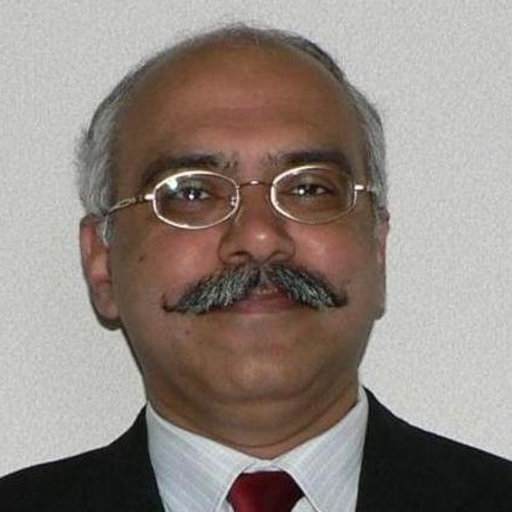 Dr. Memon is working with United Nations Environment Programme as a Regional Coordinator for Resource Efficiency in Asia Pacific Office located in Bangkok. He is supporting resource efficiency, sustainable consumption and production, green economy, green financing, sustainable public procurement, sustainable tourism, sustainable industries and various areas for Asia and the Pacific.He is also implementing EU funded SWITCH-Asia Phase 2 component by UN Environment to support Sustainable Development Goals (SDGs), especially SDG 12 on sustainable consumption and production in the region.He has also published various papers in international journals and has delivered various training programmes. Dr. Memon is working with United Nations Environment Programme as a Regional Coordinator for Resource Efficiency in Asia Pacific Office located in Bangkok. He is supporting resource efficiency, sustainable consumption and production, green economy, green financing, sustainable public procurement, sustainable tourism, sustainable industries and various areas for Asia and the Pacific.He is also implementing EU funded SWITCH-Asia Phase 2 component by UN Environment to support Sustainable Development Goals (SDGs), especially SDG 12 on sustainable consumption and production in the region.He has also published various papers in international journals and has delivered various training programmes.
|
Mr. Shiv Das Meena
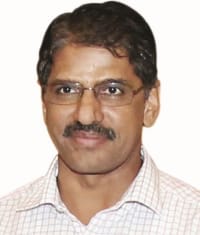 Mr. Shiv Das Meena is 1989 batch IAS officer of Tamil Nadu cadre heading the Central Pollution Control Board, under Ministry of Environment, Forests and Climate Change, GoI. His previous stint included Chairman and Managing Director of Housing and Urban Development Corporation (HUDCO). He is graduated in Bachelors of Civil Engineering earned his Masters of International Studies from Japan. Mr. Shiv Das Meena is 1989 batch IAS officer of Tamil Nadu cadre heading the Central Pollution Control Board, under Ministry of Environment, Forests and Climate Change, GoI. His previous stint included Chairman and Managing Director of Housing and Urban Development Corporation (HUDCO). He is graduated in Bachelors of Civil Engineering earned his Masters of International Studies from Japan.
|
| Dr. Rajnarayan R Tiwari
 Dr. Rajnarayan R Tiwari is the Director of ICMR- NIREH (National Institute for Research in Environmental Health). His thrust areas have focused on occupational health, environmental and public health.He is an elected Fellow of Indian Association of Preventive and Social Medicine and fellow of Indian Public Health Association. A recipient of awardeessuch as Dr. MK Seshadri Prize by Indian Council of Medical Research, New Delhi and Honorary Associate Fellow in Industrial Health by Mahatma GandhiLabour Institute and Directorate Industrial Safety and Health, Government of Gujarat, Ahmedabad, Dr.Tiwari has many renowned publications to his merit. Dr. Rajnarayan R Tiwari is the Director of ICMR- NIREH (National Institute for Research in Environmental Health). His thrust areas have focused on occupational health, environmental and public health.He is an elected Fellow of Indian Association of Preventive and Social Medicine and fellow of Indian Public Health Association. A recipient of awardeessuch as Dr. MK Seshadri Prize by Indian Council of Medical Research, New Delhi and Honorary Associate Fellow in Industrial Health by Mahatma GandhiLabour Institute and Directorate Industrial Safety and Health, Government of Gujarat, Ahmedabad, Dr.Tiwari has many renowned publications to his merit.
|
Mr. Swapan Mehra
 Mr. Swapan Mehra is the Vice President (Waste to Wealth), Invest India. An Environmental Finance expert with proficiency on developing conservation policies, strategies and projects across Forestry and Biodiversity Conservation, REDD+, Valuation of Ecosystem Services, Agricultural Biodiversity, Renewable Energy, Clean Energy, Energy Efficiency, Waste Management. Sound experience in the International Carbon Credit Trading/ Markets. Pioneering the development of REDD+ in India as key member of the USAID Forest PLUS project. Co-author of the National REDD+ Strategy Document, REDD+ Policy, TEEB India Scoping Study, TEEB India Western Ghats Case Study and Fourteenth Finance Commission Criterion to reward HCV forests. Mr. Swapan Mehra is the Vice President (Waste to Wealth), Invest India. An Environmental Finance expert with proficiency on developing conservation policies, strategies and projects across Forestry and Biodiversity Conservation, REDD+, Valuation of Ecosystem Services, Agricultural Biodiversity, Renewable Energy, Clean Energy, Energy Efficiency, Waste Management. Sound experience in the International Carbon Credit Trading/ Markets. Pioneering the development of REDD+ in India as key member of the USAID Forest PLUS project. Co-author of the National REDD+ Strategy Document, REDD+ Policy, TEEB India Scoping Study, TEEB India Western Ghats Case Study and Fourteenth Finance Commission Criterion to reward HCV forests.
|

Know About Your Hosts
|
|
| Dr. Arvind Kumar
 Dr. Arvind Kumar is Governor World Water Council and founder president of India Water Foundation. He has been instrumental in Inter-Sectoral Convergence in Water Sector and Regional Water Diplomacy. He is Member Technical Advisory Committee for India’s Third National Communication and Biennial Update Reports to UNFCCC and member of the ‘National Wetlands Committee’, ministry of environment forest and climate change, Government of India. He is Member Meghalaya State Water Resources Council and the State Council for Climate Change and Sustainable Development, government of Meghalaya. He is PhD Defense Studies has published over 400-plus research articles in reputed journals. Dr. Arvind Kumar is Governor World Water Council and founder president of India Water Foundation. He has been instrumental in Inter-Sectoral Convergence in Water Sector and Regional Water Diplomacy. He is Member Technical Advisory Committee for India’s Third National Communication and Biennial Update Reports to UNFCCC and member of the ‘National Wetlands Committee’, ministry of environment forest and climate change, Government of India. He is Member Meghalaya State Water Resources Council and the State Council for Climate Change and Sustainable Development, government of Meghalaya. He is PhD Defense Studies has published over 400-plus research articles in reputed journals.
|
Mr. Atul Bagai
 Mr. Atul Bagai joined UN Environment’s Ozone Action programme under the Montreal Protocol as the Regional Officer for South Asia in 2000 and served as Senior Regional Coordinator to build the capacity of sub-regional networks in Asia and enable them to meet the compliance targets under the Montreal Protocol. In that capacity, he spearheaded and led some innovative initiatives with the Executive Committee of the Multilateral Fund. For instance, he was instrumental in designing and developing synergies between Ozone Depleting Substance phase out and climate change in Maldives and Bhutan; green procurement policies in Mongolia taking into account phase-out of Ozone Depleting Substance as a legislation; a study of carbon credits and Ozone Depleting Substance destruction in Nepal; and, most recently, the hydro-chloro-fluoro-carbon phase-out plan for India that included energy efficiency and the cold chain. Mr. Atul Bagai joined UN Environment’s Ozone Action programme under the Montreal Protocol as the Regional Officer for South Asia in 2000 and served as Senior Regional Coordinator to build the capacity of sub-regional networks in Asia and enable them to meet the compliance targets under the Montreal Protocol. In that capacity, he spearheaded and led some innovative initiatives with the Executive Committee of the Multilateral Fund. For instance, he was instrumental in designing and developing synergies between Ozone Depleting Substance phase out and climate change in Maldives and Bhutan; green procurement policies in Mongolia taking into account phase-out of Ozone Depleting Substance as a legislation; a study of carbon credits and Ozone Depleting Substance destruction in Nepal; and, most recently, the hydro-chloro-fluoro-carbon phase-out plan for India that included energy efficiency and the cold chain.
|
Know Your Anchor
|
|
MS. SHWETA TYAGI
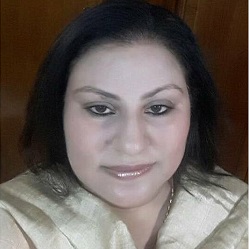 MS. SHWETA TYAGI is currently the Chief Functionary of the India Water Foundation. She looks after administration, communication, Programmes, planning for research projects, and conferences. She has over 12 years of work experience in Project Appraisal, Implementation, Monitoring & Evaluation of Social and Rural Development Projects in different Sectors. MS. SHWETA TYAGI is currently the Chief Functionary of the India Water Foundation. She looks after administration, communication, Programmes, planning for research projects, and conferences. She has over 12 years of work experience in Project Appraisal, Implementation, Monitoring & Evaluation of Social and Rural Development Projects in different Sectors.
|
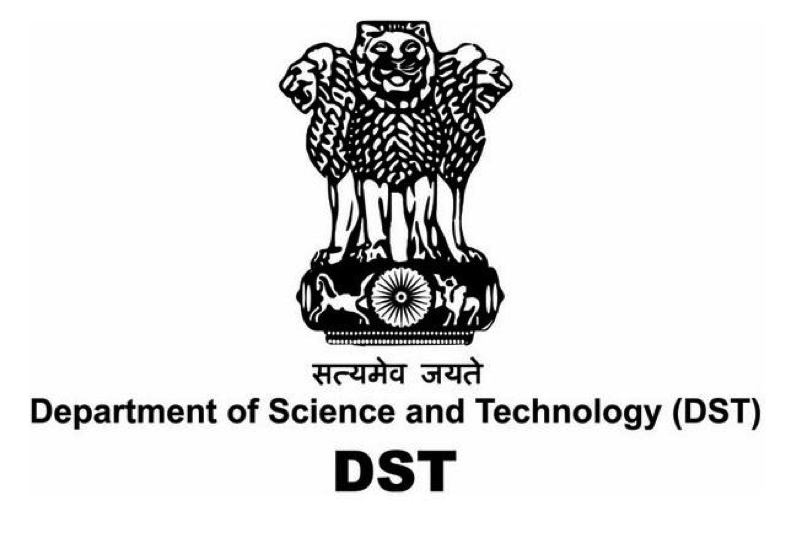

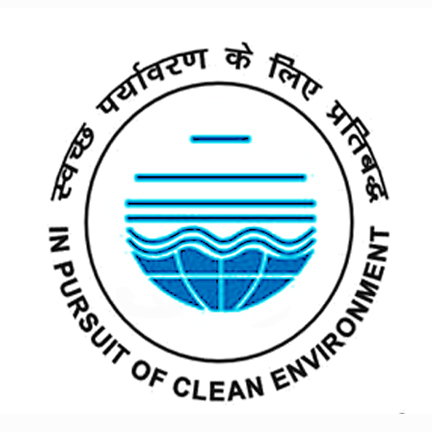

 MS. SHWETA TYAGI is currently the Chief Functionary of the India Water Foundation. She looks after administration, communication, Programmes, planning for research projects, and conferences. She has over 12 years of work experience in Project Appraisal, Implementation, Monitoring & Evaluation of Social and Rural Development Projects in different Sectors.
MS. SHWETA TYAGI is currently the Chief Functionary of the India Water Foundation. She looks after administration, communication, Programmes, planning for research projects, and conferences. She has over 12 years of work experience in Project Appraisal, Implementation, Monitoring & Evaluation of Social and Rural Development Projects in different Sectors.


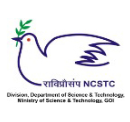
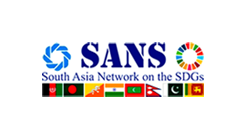


 Dr. HarshVardhan is the Union Minister of Health and Family Welfare, Minister of Science and Technology, Minister of Earth Sciences and current Chair of World Health Organization’s Executive Board. His endeavors have pertained to the field of health at national and international level particularly polio eradication, tobacco control, essential drug policy, organ donation, etc.His public life has been marked by outstanding achievements in the fields of health, education, law, science & technology and environment.
Dr. HarshVardhan is the Union Minister of Health and Family Welfare, Minister of Science and Technology, Minister of Earth Sciences and current Chair of World Health Organization’s Executive Board. His endeavors have pertained to the field of health at national and international level particularly polio eradication, tobacco control, essential drug policy, organ donation, etc.His public life has been marked by outstanding achievements in the fields of health, education, law, science & technology and environment. Mr. U.P. Singh is a Secretary in the Department of Water Resources, River Development & Ganga Rejuvenation, Ministry of Jal Shakti. He has held important assignments in both Central and State Governments and possesses a rich and varied experience. He is deeply involved in policy, planning and management of water resources in India. He oversees the implementation of PMKSY Projects, Inter-Linking of Rivers, two World Bank funded projects, viz. National Hydrology Project and National Ground Water Management and Improvement Scheme. These projects envisage revolutionizing water resources management in the country.
Mr. U.P. Singh is a Secretary in the Department of Water Resources, River Development & Ganga Rejuvenation, Ministry of Jal Shakti. He has held important assignments in both Central and State Governments and possesses a rich and varied experience. He is deeply involved in policy, planning and management of water resources in India. He oversees the implementation of PMKSY Projects, Inter-Linking of Rivers, two World Bank funded projects, viz. National Hydrology Project and National Ground Water Management and Improvement Scheme. These projects envisage revolutionizing water resources management in the country. Prof. Ashutosh Sharma is a Secretary to the Government of India since January 2015, heading the Department of Science and Technology (
Prof. Ashutosh Sharma is a Secretary to the Government of India since January 2015, heading the Department of Science and Technology ( Ms Payden, is a public health professional with more than 24 years’ experience. Her expertise is in the areas of water, sanitation, hygiene and waste management. She worked in the WHO regional office for south-east asia, as regional advisor for WASH for 11 years. She is currently working in WHO India office as deputy Head of Office and she coordinates health programmes such as communicable diseases, NCDs, maternal and child health, health systems, health security and emergency and environmental health. She has a Masters in Sanitary Engineering and Masters in Public Health.
Ms Payden, is a public health professional with more than 24 years’ experience. Her expertise is in the areas of water, sanitation, hygiene and waste management. She worked in the WHO regional office for south-east asia, as regional advisor for WASH for 11 years. She is currently working in WHO India office as deputy Head of Office and she coordinates health programmes such as communicable diseases, NCDs, maternal and child health, health systems, health security and emergency and environmental health. She has a Masters in Sanitary Engineering and Masters in Public Health. Dr. Muralee Thummarukudy is the Chief of Disaster Risk Reduction, UN Environment Programme.He has dealt with the environmental issues associated with conflicts in Afghanistan, Iraq, Lebanon, Syria, Liberia, Sudan and occupied Palestinian territories. He deals with environmental issues caused by tsunamis, floods, earthquakes, volcanoes, oil spill and explosion of ammunition dumps around the world. With more than twenty-five years of international experience in the field of Environmental Management in Crises situations, MrMuralee is one of world’s leading authorities on this topic and frequently lectures in universities around the world on the topic.
Dr. Muralee Thummarukudy is the Chief of Disaster Risk Reduction, UN Environment Programme.He has dealt with the environmental issues associated with conflicts in Afghanistan, Iraq, Lebanon, Syria, Liberia, Sudan and occupied Palestinian territories. He deals with environmental issues caused by tsunamis, floods, earthquakes, volcanoes, oil spill and explosion of ammunition dumps around the world. With more than twenty-five years of international experience in the field of Environmental Management in Crises situations, MrMuralee is one of world’s leading authorities on this topic and frequently lectures in universities around the world on the topic. Dr. Memon is working with United Nations Environment Programme as a Regional Coordinator for Resource Efficiency in Asia Pacific Office located in Bangkok. He is supporting resource efficiency, sustainable consumption and production, green economy, green financing, sustainable public procurement, sustainable tourism, sustainable industries and various areas for Asia and the Pacific.He is also implementing EU funded SWITCH-Asia Phase 2 component by UN Environment to support Sustainable Development Goals (SDGs), especially SDG 12 on sustainable consumption and production in the region.He has also published various papers in international journals and has delivered various training programmes.
Dr. Memon is working with United Nations Environment Programme as a Regional Coordinator for Resource Efficiency in Asia Pacific Office located in Bangkok. He is supporting resource efficiency, sustainable consumption and production, green economy, green financing, sustainable public procurement, sustainable tourism, sustainable industries and various areas for Asia and the Pacific.He is also implementing EU funded SWITCH-Asia Phase 2 component by UN Environment to support Sustainable Development Goals (SDGs), especially SDG 12 on sustainable consumption and production in the region.He has also published various papers in international journals and has delivered various training programmes. Mr. Shiv Das Meena is 1989 batch IAS officer of Tamil Nadu cadre heading the Central Pollution Control Board, under Ministry of Environment, Forests and Climate Change, GoI. His previous stint included Chairman and Managing Director of Housing and Urban Development Corporation (HUDCO). He is graduated in Bachelors of Civil Engineering earned his Masters of International Studies from Japan.
Mr. Shiv Das Meena is 1989 batch IAS officer of Tamil Nadu cadre heading the Central Pollution Control Board, under Ministry of Environment, Forests and Climate Change, GoI. His previous stint included Chairman and Managing Director of Housing and Urban Development Corporation (HUDCO). He is graduated in Bachelors of Civil Engineering earned his Masters of International Studies from Japan. Dr. Rajnarayan R Tiwari is the Director of ICMR- NIREH (National Institute for Research in Environmental Health). His thrust areas have focused on occupational health, environmental and public health.He is an elected Fellow of Indian Association of Preventive and Social Medicine and fellow of Indian Public Health Association. A recipient of awardeessuch as Dr. MK Seshadri Prize by Indian Council of Medical Research, New Delhi and Honorary Associate Fellow in Industrial Health by Mahatma GandhiLabour Institute and Directorate Industrial Safety and Health, Government of Gujarat, Ahmedabad, Dr.Tiwari has many renowned publications to his merit.
Dr. Rajnarayan R Tiwari is the Director of ICMR- NIREH (National Institute for Research in Environmental Health). His thrust areas have focused on occupational health, environmental and public health.He is an elected Fellow of Indian Association of Preventive and Social Medicine and fellow of Indian Public Health Association. A recipient of awardeessuch as Dr. MK Seshadri Prize by Indian Council of Medical Research, New Delhi and Honorary Associate Fellow in Industrial Health by Mahatma GandhiLabour Institute and Directorate Industrial Safety and Health, Government of Gujarat, Ahmedabad, Dr.Tiwari has many renowned publications to his merit. Mr. Swapan Mehra is the Vice President (Waste to Wealth), Invest India. An Environmental Finance expert with proficiency on developing conservation policies, strategies and projects across Forestry and Biodiversity Conservation, REDD+, Valuation of Ecosystem Services, Agricultural Biodiversity, Renewable Energy, Clean Energy, Energy Efficiency, Waste Management. Sound experience in the International Carbon Credit Trading/ Markets. Pioneering the development of REDD+ in India as key member of the USAID Forest PLUS project. Co-author of the National REDD+ Strategy Document, REDD+ Policy, TEEB India Scoping Study, TEEB India Western Ghats Case Study and Fourteenth Finance Commission Criterion to reward HCV forests.
Mr. Swapan Mehra is the Vice President (Waste to Wealth), Invest India. An Environmental Finance expert with proficiency on developing conservation policies, strategies and projects across Forestry and Biodiversity Conservation, REDD+, Valuation of Ecosystem Services, Agricultural Biodiversity, Renewable Energy, Clean Energy, Energy Efficiency, Waste Management. Sound experience in the International Carbon Credit Trading/ Markets. Pioneering the development of REDD+ in India as key member of the USAID Forest PLUS project. Co-author of the National REDD+ Strategy Document, REDD+ Policy, TEEB India Scoping Study, TEEB India Western Ghats Case Study and Fourteenth Finance Commission Criterion to reward HCV forests. Dr. Arvind Kumar is Governor World Water Council and founder president of India Water Foundation. He has been instrumental in Inter-Sectoral Convergence in Water Sector and Regional Water Diplomacy. He is Member Technical Advisory Committee for India’s Third National Communication and Biennial Update Reports to UNFCCC and member of the ‘National Wetlands Committee’, ministry of environment forest and climate change, Government of India. He is Member Meghalaya State Water Resources Council and the State Council for Climate Change and Sustainable Development, government of Meghalaya. He is PhD Defense Studies has published over 400-plus research articles in reputed journals.
Dr. Arvind Kumar is Governor World Water Council and founder president of India Water Foundation. He has been instrumental in Inter-Sectoral Convergence in Water Sector and Regional Water Diplomacy. He is Member Technical Advisory Committee for India’s Third National Communication and Biennial Update Reports to UNFCCC and member of the ‘National Wetlands Committee’, ministry of environment forest and climate change, Government of India. He is Member Meghalaya State Water Resources Council and the State Council for Climate Change and Sustainable Development, government of Meghalaya. He is PhD Defense Studies has published over 400-plus research articles in reputed journals. Mr. Atul Bagai joined UN Environment’s Ozone Action programme under the Montreal Protocol as the Regional Officer for South Asia in 2000 and served as Senior Regional Coordinator to build the capacity of sub-regional networks in Asia and enable them to meet the compliance targets under the Montreal Protocol. In that capacity, he spearheaded and led some innovative initiatives with the Executive Committee of the Multilateral Fund. For instance, he was instrumental in designing and developing synergies between Ozone Depleting Substance phase out and climate change in Maldives and Bhutan; green procurement policies in Mongolia taking into account phase-out of Ozone Depleting Substance as a legislation; a study of carbon credits and Ozone Depleting Substance destruction in Nepal; and, most recently, the hydro-chloro-fluoro-carbon phase-out plan for India that included energy efficiency and the cold chain.
Mr. Atul Bagai joined UN Environment’s Ozone Action programme under the Montreal Protocol as the Regional Officer for South Asia in 2000 and served as Senior Regional Coordinator to build the capacity of sub-regional networks in Asia and enable them to meet the compliance targets under the Montreal Protocol. In that capacity, he spearheaded and led some innovative initiatives with the Executive Committee of the Multilateral Fund. For instance, he was instrumental in designing and developing synergies between Ozone Depleting Substance phase out and climate change in Maldives and Bhutan; green procurement policies in Mongolia taking into account phase-out of Ozone Depleting Substance as a legislation; a study of carbon credits and Ozone Depleting Substance destruction in Nepal; and, most recently, the hydro-chloro-fluoro-carbon phase-out plan for India that included energy efficiency and the cold chain.